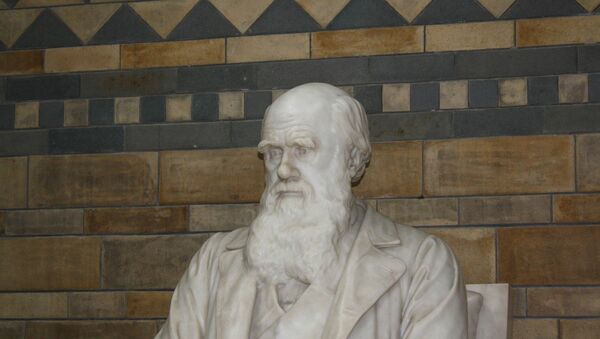MOSCOW, December 2 (Sputnik) — More than 12,000 digitized copies of Charles Darwin’s notes, accompanied by transcriptions and detailed notes have been released online in a high-quality collection by Cambridge University Library, the BBC reports.
The collection tracks the history of Darwin’s research from coining the term "natural selection" to the release of his main work "On the Origin of Species" in 1859.
Cambridge University Library keeps almost the entire collection of the evolutionary theorist’s scientific papers.
Last year, letters showing Darwin’s emotional side were released.
The library hopes the latest material will be important for understanding the development of the theory of evolution and will contribute to scientific research throughout the world.
"These documents truly constitute the surviving seedbed of 'the Origin'," Professor David Kohn, director of the Darwin Manuscript Project, which collaborated with the university.
"In them, Darwin hammered out natural selection and the structure of concepts he used to support natural selection. It was here also that he developed his evolutionary narrative and where he experimented privately with arguments and strategies of presentation that he either rejected or that eventually saw the light of day with the Origin's publication," he said.
The collection includes such papers as the unseen "Transmutation" and "Metaphysical" notebooks of the 1830s, and the 1842 "Pencil Sketch". It is being released on the 155th anniversary of "On the Origin of Species", in which Darwin first used the term "natural selection".
"Transmutation" Notebook B sees Darwin’s first attempt to formulate a full theory of evolution. Books D and E contain the conception taking form, in late 1838 and early 1830s, and a great number of previously unpublished notes.
The university also plans to publish pictures of almost 300 of Darwin’s letters which have been annotated by the Darwin Correspondence Project, an Anglo-American research alliance in Cambridge. Their release is set for June 2015 and covers notes and drafts of his eight post-Origin books.

